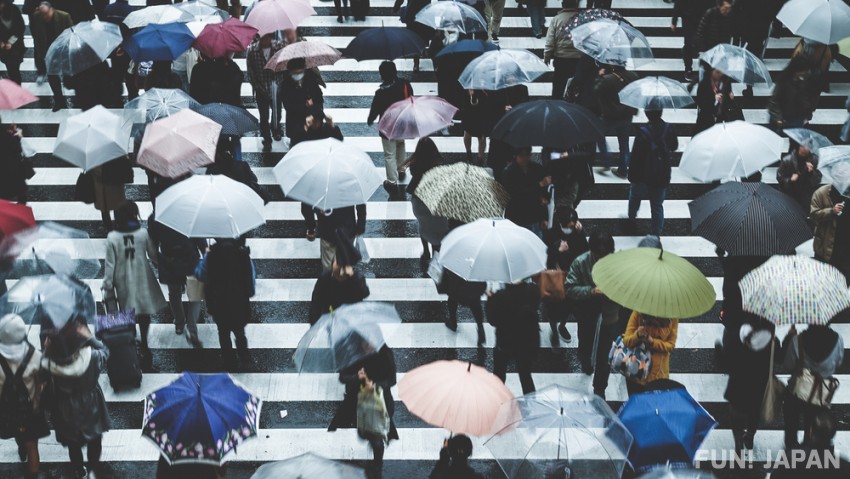
Heavy rainfall is extremely common in Japan. It's often seen during the changing of seasons, with the rainy season being set during the switch from Spring to Summer, the autumn rain from the switch from Summer to Autumn, and, of course, during typhoons.
Furthermore, due to climate change, recent years have seen record-breaking numbers when it comes to rainfall.
As such, this article is going to be delving into Japan's rainfall. It will include information on what to do if an alert is given during your stay, so make sure to read until the end!
Japan's Average Rainfall is 2x That of the World's Average!
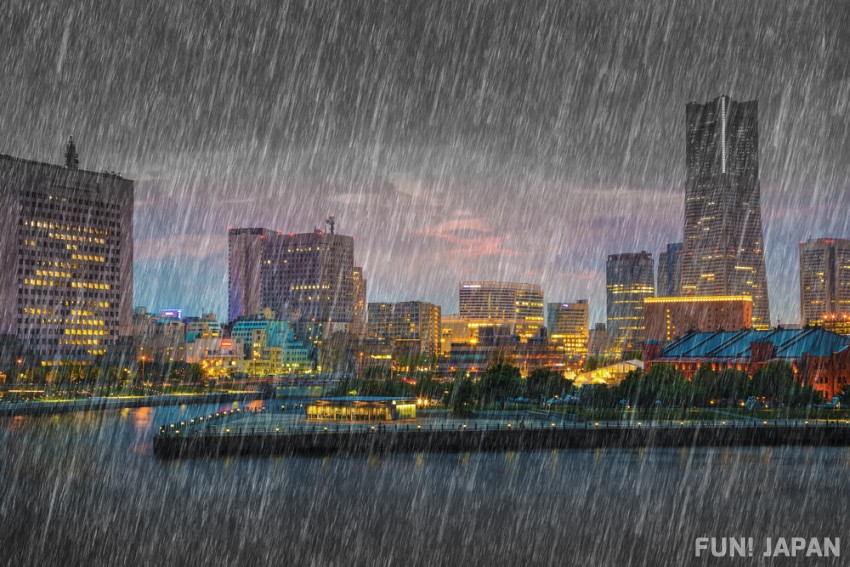
Japan is located to the east of what's often referred to as "Monsoon Asia", and its yearly rainfall certainly shows it. With an average yearly rainfall of 1718mm, it comes in at 2x the world's average (880mm)!
This rainfall changes quite severely depending on the season, with the majority of the rainfall being seen during the rainy season, when Summer turns to Autumn, and during typhoons. If we look at 51 national observation points over a 120-year period (1901 - 2020) we can see that in the long term, daily rainfall is slowly increasing by around 100-200mm during periods of heavy rainfall. Furthermore, the amount of heavy rainfall in the average year is changing, seeing many more cumulonimbus clouds forming and causing record-breaking rainfall across the country.
A Yearly Increase of Natural Disasters Caused by Rainfall
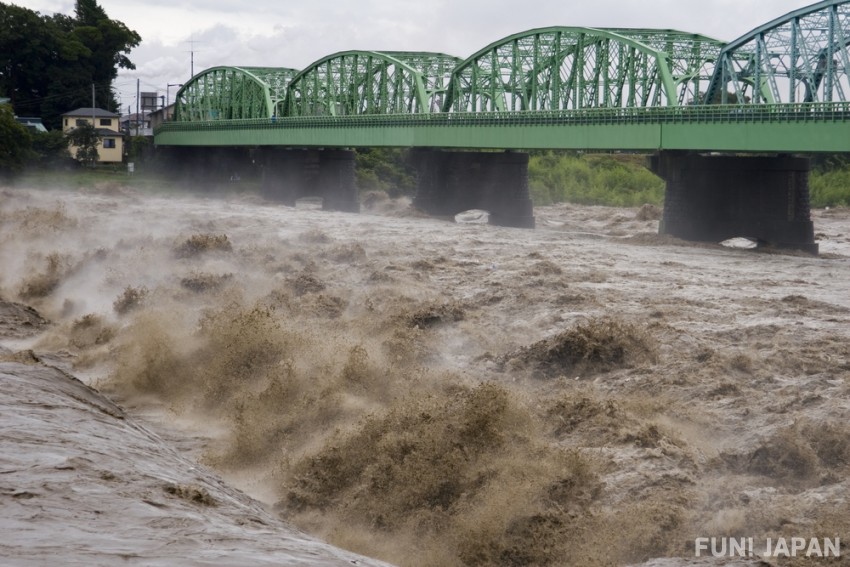
In October 2019, due to Typhoon #19's fierce rainfall, many of Kanto's and Tohoku's rivers overflowed, flooding surrounding towns, and in July of 2020, Kumamoto Prefecture saw record-breaking rainfall. In 2021, a landslide was seen in Atama from Izusan, with repairs continuing even to this day. Looking back, there seems to be a lot more news regarding natural disasters caused by rainfall in recent years.
While we've been talking about the effects of climate change and how it's increasing the amount of unexpectedly strong rain and such, on the other side, we're also seeing tendencies of days where there is no rainfall at all, rainfall, in general, seems to become more and more extreme each and every year.
Natural Disasters Caused by Extreme Rainfall
By the way, while it's important to ensure you're careful when rainfall is high, it's also important to ensure you're paying close attention to any secondary natural disasters which may occur such as landfalls, which can also occur AFTER it's stopped raining. Let's take a quick look at some examples of flooding and landslides.
Landslides
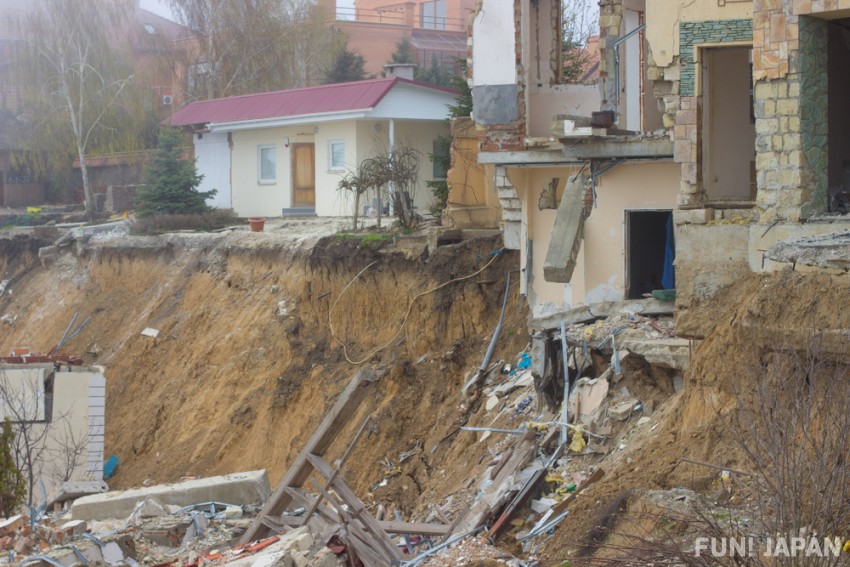
One of the most common secondary disasters that can accompany heavy rainfall is a landslide. It's important to check if the location you're visiting is at risk for landslides, and if rain begins to fall, ensure you're keeping up-to-date on the latest information and cautions, evacuating early if necessary.
- Landslip
The liquid within the ground weakens the resistance of the ground, causing a crumbling of dirt and rocks above ground due to rain or earthquakes. Cracks may be seen in the cliffside, with small rocks falling, water gushing forth from these cracks, with spring water mixing with impurities and browning, rumbles from the slope are just some of the signs that a landslip may soon occur.
- Landslide
A landslide occurs when part of, or a large portion of ground is slowly moved due to underground water. Hearing rumbles from underground as well as seeing differences in the level of ground and water coming out of these cracks are indications of a high chance that a landslide may occur.
- Mudslide
Due to prolonged or severe rainfall, water will accumulate in and around the rocks and dirt, causing a quick mudslide pushing all the rock and sediment down with it. You're able to predict when a mudslide may occur if you hear the rumbling of a mountain, if river water suddenly becomes dirty, if you can smell rotting dirt, or if you see the river water levels dip even within prolonged or severe sessions of rainfall.
Flooding
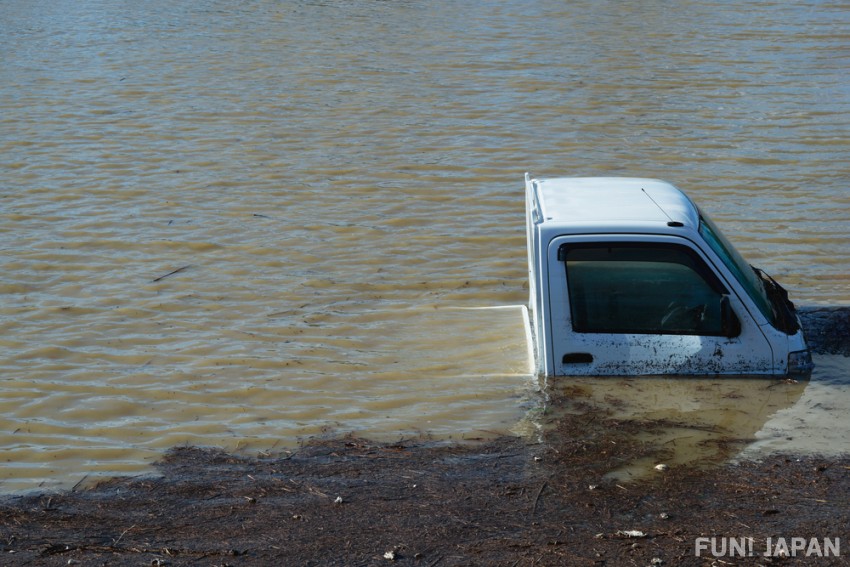
Due to severe rainfall, it's possible that a river's water level will increase to a point that can cause flooding and encroachment. It's important to check the specific information regarding the river that's close to where you're staying.
Submersion
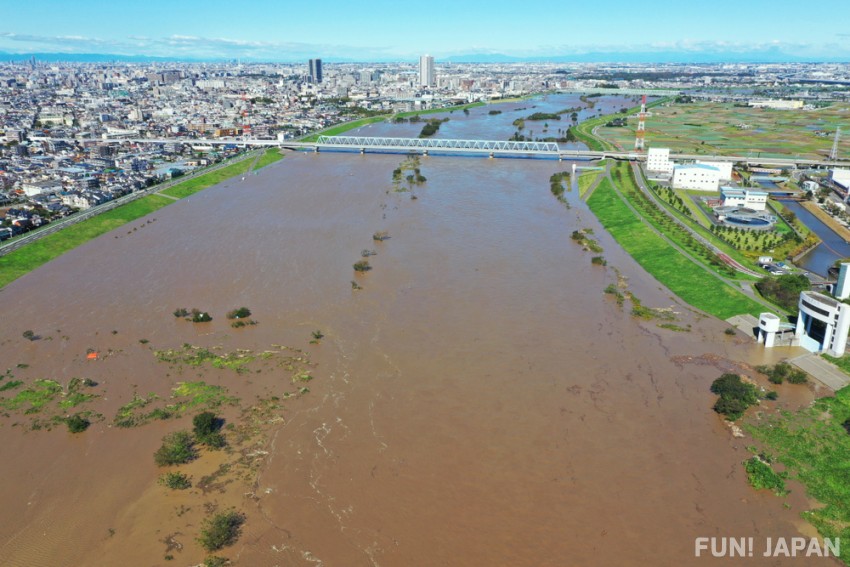
It's also possible that the land cannot deal with the sheer amount of rainfall, this can cause irrigation channels, drainage ditches, and other such locations to overflow, submerging nearby houses and fields with water.
Evacuate Immediately at Caution Level 4
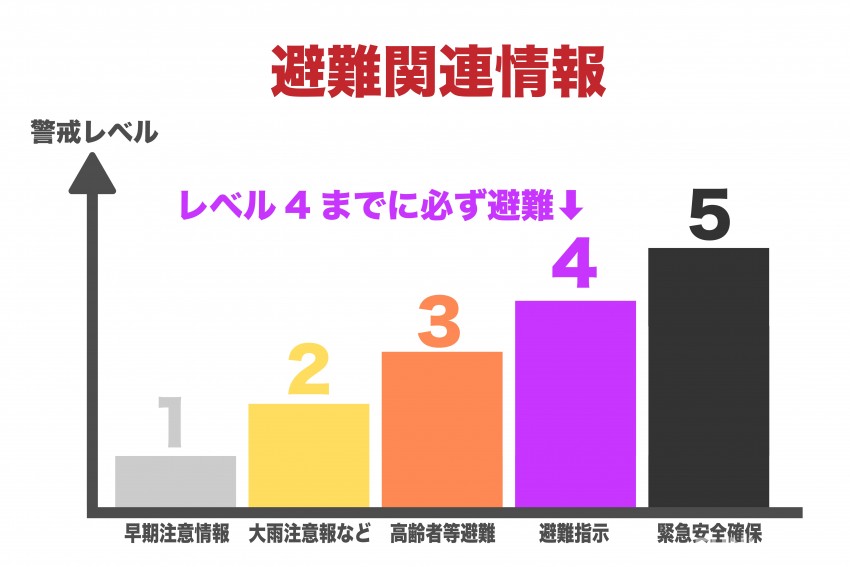
There are 5 levels based on weather information to help local residents understand what they need to do for each specific level. In May of 2021, the levels were revised, and each now entails the following actions and information.
Level 1(Preliminary Warnings):
When there are chances of an appearance of a typhoon or other such thing, it will usually be reported through a "Preliminary warning" up to 5 days in advance with a level of high or medium.
- What to do: Prepare yourself for the possibility of the incoming threat.
Level 2(Heavy Rain, Flooding, High Tide Warnings):
An amber alert will be put out, with cautions regarding heavy rainfall announced.
- What to do: Ensure you know your evacuation procedures. Check the hazard zones around your area, and figure out your plan of evacuation in the event that it's required.
Level 3(Evacuation of High-risk Citizens (Elderly etc.)):
A red alert will be put out, with heavy rainfall (landslides), flooding alerts, and other such events.
- What to do: High-risk citizens and the elderly should evacuate at this point. Other people should ensure they prepare themselves for evacuation and move under one's own initiative.
Level 4(Evacuation):
A purple alert will be put out, landslide caution and information, flooding information, high-tides, and other such special information will be provided.
- What to do: Evacuate immediately to the nearest safe zone.
Level 5(Urgent Safety Measures):
A black alert will be put out, special information regarding extreme rainfall, flooding, and other information will be given.
- What to do: Prioritize your own life over all else. This alert will mostly be given after a natural disaster has been confirmed, meaning you won't always be able to evacuate, and your life may be at risk. Proceed to determine if your current area or nearby area is safest and make informed decisions to survive. However, we highly recommend evacuating at or before level 4.
Heavy Rainfall Warning While in Japan - What to Do
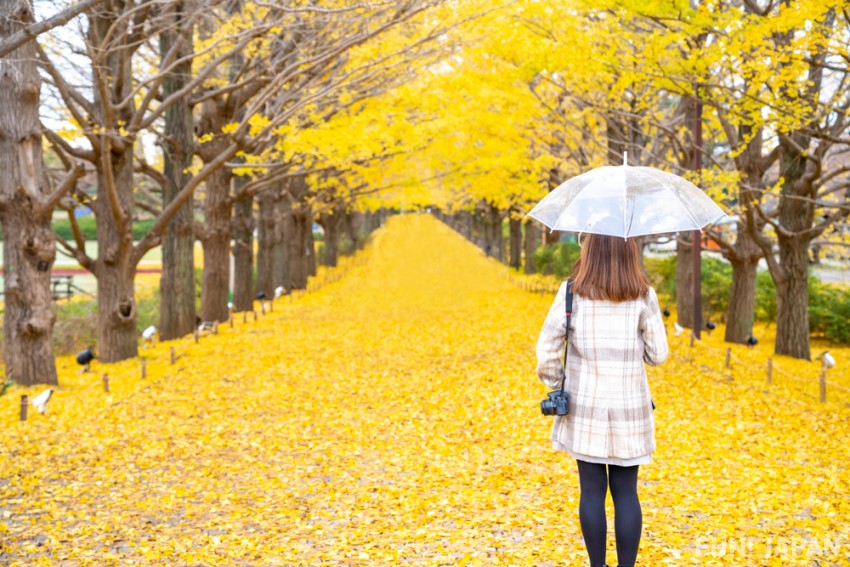
If the weather gets bad during your stay in Japan, make sure to not only check the weather predictions, but also if the location you're currently staying is safe, and in the event that the area you're in has a warning, make sure to read all of the cautions and warnings listed on the weather forecast website. You can also download an app called "Safety Tips". This app is made specifically for foreign visitors to Japan to ensure you know everything you need to through push notifications in the event that you're caught up in an earthquake, heavy rainfall, or other such natural disasters. It also helps you know the flow of evacuation, gives you a communication card, and more. It supports 15 unique languages, so it would be a good idea to download the app beforehand. We also recommend checking the weather forecast near to your place of stay prior to visiting.
If the area you're visiting is prone to these natural disasters, it's important to ensure utmost caution. Furthermore, make sure to check transport information beforehand, contacting each company you're planning to travel with is recommended. However, the most important will always be knowing how and when to evacuate and ensure your own personal safety.
Make sure to learn a lot about these various disaster-related things prior to visiting, searching the Japan Ministry of Land, Infrastructure, Transport and Tourism website is a good start. Make sure to make a note of all the websites and information sources we've talked about thus far, prepare in advance, and enjoy your trip.
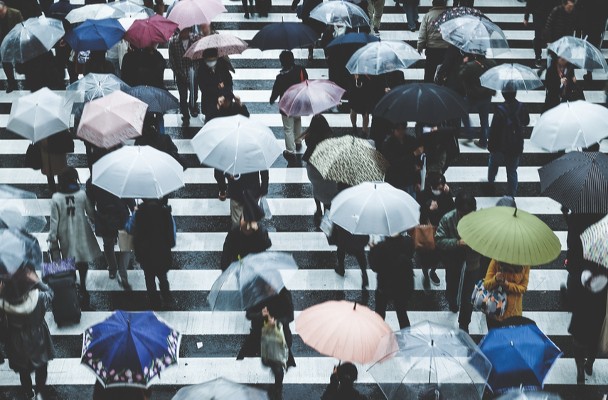
Comments